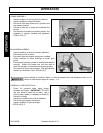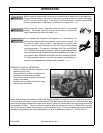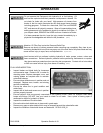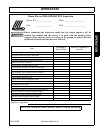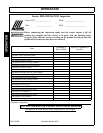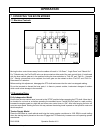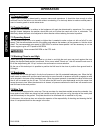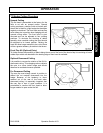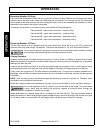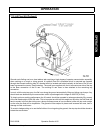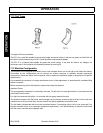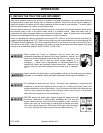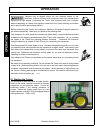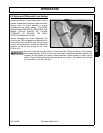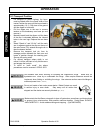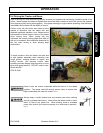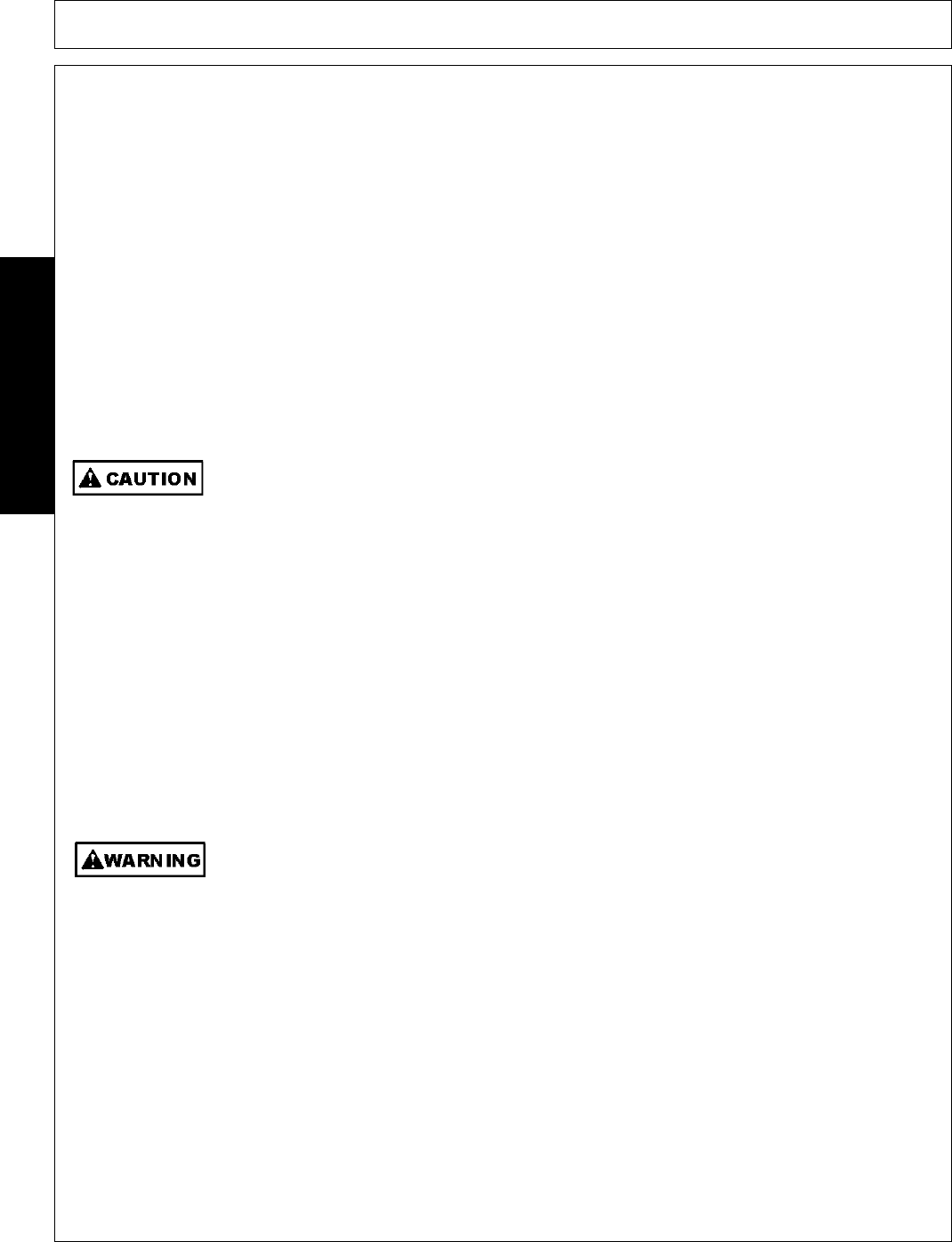
OPERATION
PA91 02/08 Operation Section 4-24
© 2009 Alamo Group Inc.
OPERATION
Reversing Rotation (Si Only)
Fully extend the armhead and lower flail to the ground to minimize oil loss. Release the rotor hoses from either
the flail motor or the rotor control valve and interchange the connections. Do not cross over the flail supply and
return hoses at any other point as the hose routing and cross overs in the installation are necessary to allow
the hoses to flex correctly during arm movements.
To ascertain the direction of cut without running the machine the following applies.
Connection MP - lower motor connection - upward cutting
Connection MR - upper motor connection - upward cutting
Connection MP - upper motor connection - downward cutting
Connection MR - lower motor connection - downward cutting
Reversing Rotation (Ti Only)
The flail rotor rotation can be reversed using the rotor control lever. Place the lever in the “Off” position and
rotate the lever stop gate through 180 degrees. This allows the selection of “On” and “Downward Rotation”.
Do not remove the lever stop gate as it prevents the unintentional instant reversal of rotation
and the likely machine damage that would be caused as a result.
Cutting Sequence
Operator preference will ultimately decide on the order of cutting. Where it is difficult to determine the original
hedge line because of overgrowth a recommended method is to start by siding up the hedge first, if necessary
making more than one pass.
A second cut should then be taken at an incline along the hedge top and again if there is prolific growth it may
be necessary to make more than one pass until the hedge is reduced to the height and contour required.
Finally, finish with a ground cut. The roller should be lowered for this. This ground cut defines the base line of
the hedge, severs shrubs and debris that encroach out from the bottom, and further mulches the toppings that
have fallen.
NOTE: Flails are more prone to accidental damage and blunting by stones on a ground cut. Therefore, when
convenient, this should be left until the end.
Where the hedge has been well maintained in the past, it may be found better to cut the top before siding up.
Do not be tempted to make a vertical cut on the fast side of the hedge. This would entail
cutting “blind” and the rotating flail would be capable of throwing debris through the
hedgerow in line with the operator.
Where both sides of a roadside hedge are to cut, always cut the field side first. The uncut roadside helps to
reduce the amount of debris being flung through the hedge into the road. Also by sloping the vertical cut to give
an “A” shape, debris is thrown down into the hedge bottom and the spread of material is reduced.



